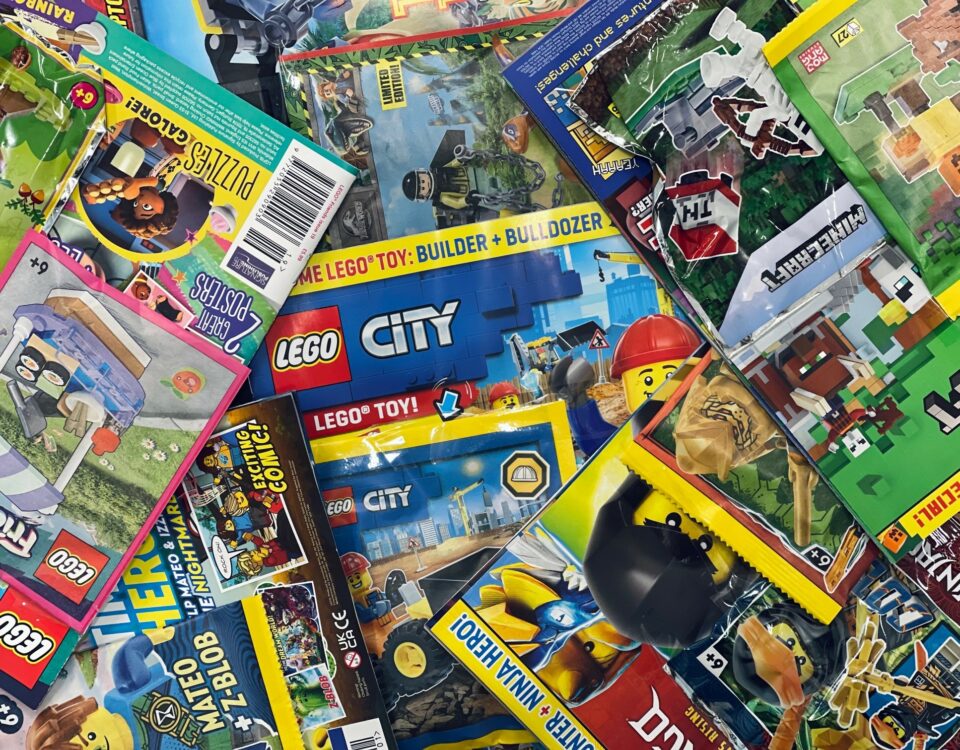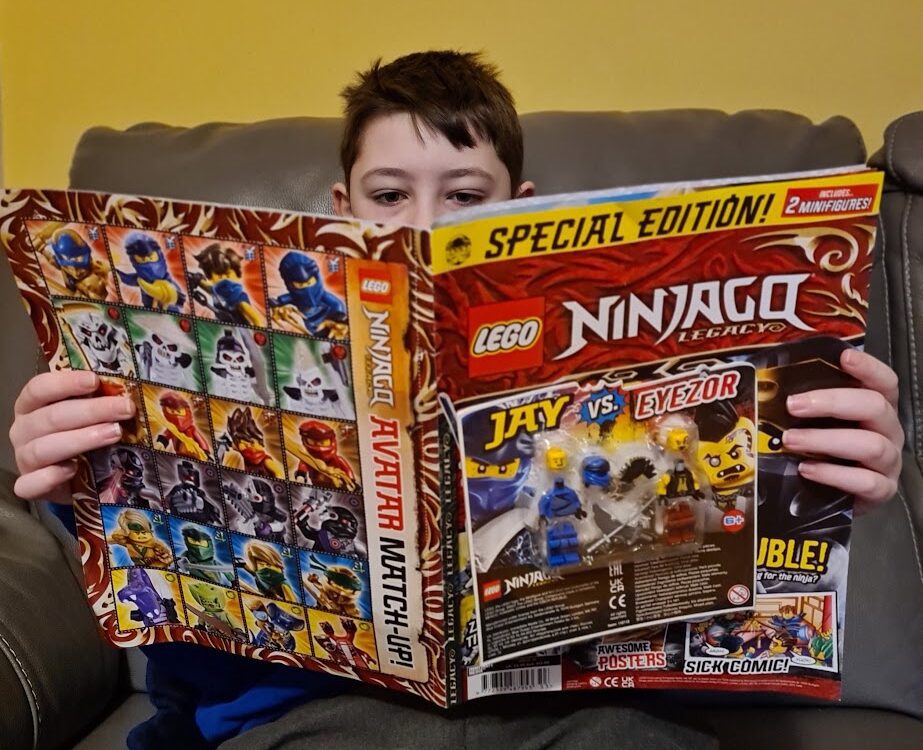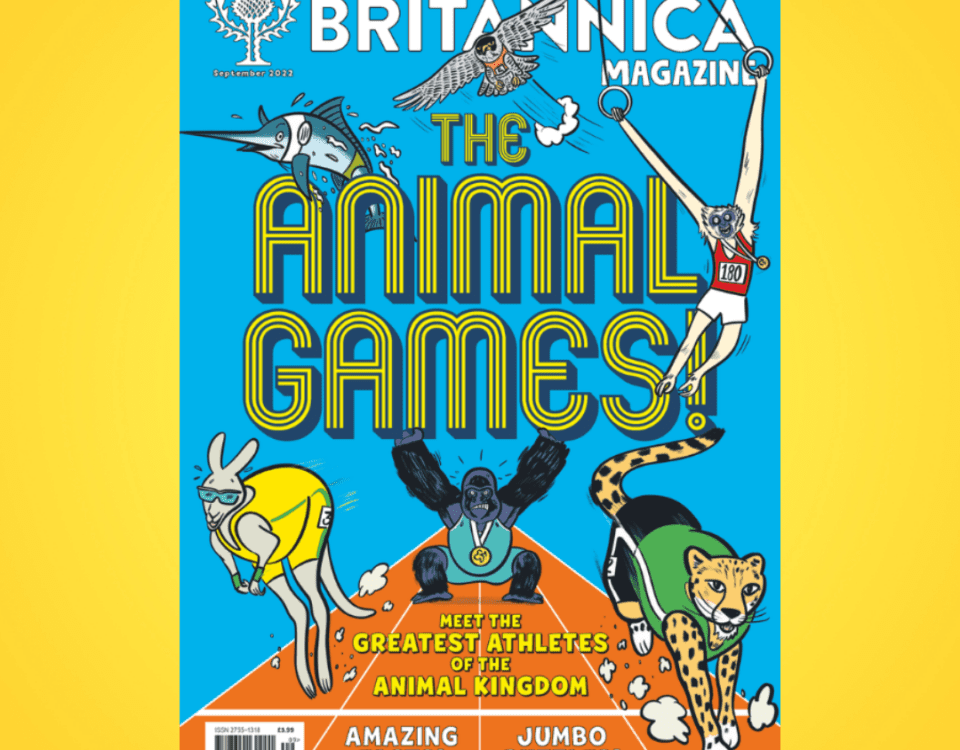


ROBOCUBES
10th August 2021Porcupine
9th September 2021We all know exams, school, and learning can be difficult and take lots of hard work for children and adults alike. But how can it be fun?
We spoke with Rossie Stone, creator of Dekko Comics to talk about what inspires him and how he got to where he is today.
Dekko is an interactive children’s comic that includes aspects of the Key Stage 2 curriculum. Rossie decided to create Dekko after using comics in his own A-level revision and finding out that he learned better and enjoyed what he was doing.
Having struggled with his dyslexia, Rossie was struggling with revision and decided he needed to try doing things his own way. Finding his own success, he is now determined to bring this to everyone else, whether they struggle with dyslexia, have trouble engaging with their work, or just want to have more fun when learning.
The beginning
Rossie had a difficult time at school, enjoying art and drama, but struggling with the rest of his studies. He found most subjects boring and he couldn’t understand them.
He describes a moment in primary school that emphasised he would have difficulty at school compared to his classmates. The teacher had described the number ‘1’ as sergeant majors like soldiers standing in a row. Rossie didn’t understand this, so he drew one of the TV characters he knew, Sergeant Major from ‘The Shoe People’.
“This was a key moment for realising I was struggling, and not fitting in made me wonder whether there was something wrong with me?”
“I started getting told off more for being distracted, bored, and not understanding subjects. I think teachers thought I was just lazy and not trying.”
There were, of course, exceptions to this. Rossie engaged well with documentary formats on those rare occasions when the TV was wheeled into the classroom or teachers used stories and expressive actions to demonstrate their point.
Rossie told us about the first teacher who said they enjoyed teaching him, he used lots of positive affirmations that made Rossie feel like he could achieve.
“Every teacher has tried with me, and I really appreciate that, but the few that got through were the ones that focussed on my qualities and efforts rather than my struggles and poor results.”
Secondary School
When he got to secondary school, Rossie was diagnosed with dyslexia. This form of dyslexia was a processing difficulty, not a reading issue.
“It was a relief finding out that I’m not stupid, there was a reason for everything.”
After this point, he was given extra time in exams and taught revision techniques such as highlighting and mind-mapping, but these did not help.
“It’s not just a speed issue it’s an understanding issue. I was seeing my friends who can concentrate and do their work naturally, without extra time, and succeed.”
While he was excelling in art and drama, Rossie fell behind in more ‘academic’ subjects where he became known as an underperformer. He did hours of revision every single day until he broke down crying one evening. He didn’t get the grades he wanted, despite the allowances.
“Reading is not the second nature skill the world assumes it to be.”
Time for change
When it came time for Rossie to do his A-levels, he decided he was not going to go through the misery he had done for his GCSEs.
“If I was going to fail anyway, I thought I might as well have fun.”
Rossie told us that while he struggled with reading books for school, he loved graphic novels, manga, comics, and even text-based story games. These engaged him like school could not. He loved reading the Beano, Dandy, Maus, Watchmen, Naruto, and Bleach.
“So, I decided to turn my revision notes for Modern Studies into a page from a comic book. It was fun to make but I was surprised to find out it was even more fun to read back.”
Through this technique, Rossie learned to enjoy revising and even started to understand the subject better.
“When it came to the exam it was more like remembering an episode of The Simpsons than a page of a textbook.”
Ready to fail he did his exam and awaited the results. Rossie got an A, his first in a non-arts-based subject.
He found out that, although his dyslexia had been a barrier to his learning, it was a difficulty that could be overcome using the right tools and techniques.
The Rossie Stone Technique
With his newfound technique, Rossie set about making all of his learning and revision a lot more fun. Something he would later use to create Dekko comics, dubbing it “The Dekko Technique”.
“Dekko uses my technique and turns it into teaching.”
He told us that it didn’t have to be comics but turning any piece of information into any piece of entertainment can help. By making the subjects more relatable, they become much easier to learn.
“I learned Shakespeare quotes by singing them to my favourite songs.”
Rossie even used the comics he made for his revision for his portfolio that got him accepted into college.
“It doesn’t just work for students struggling with dyslexia, it can work for many people”
Access to information is an important issue, and this technique lets people make the information they need more accessible to them.
Some games such as Lego and Minecraft have been firmly accepted by schools, with some specialist sets and editions designed for use in educational establishments.
“You can make entertainment out of anything; I used the pen and paper I was already using for my revision. I bet kids could make video games now with the tools they have. That is something I would have been really excited by when I was revising.”
Inspiration
We asked Rossie where he draws inspiration from, in his work, art, and life. His first answer was his family, his parents, and his siblings who have helped him in business and all throughout his life. Then the Beano and Dandy, which have informed the style and name of his comics. Beano is an old word for a party, Dandy means looking good, and Dekko is an old word for having a look. The last inspiration he mentioned was Walt Disney.
“I know he wasn’t faultless but Walt Disney’s drive and determination, his artistic values, and willingness to take creative risks when he believed in something are very inspiring to me.”
Walt Disney was the first person to release a full feature-length animated film (Snow White, 1937), and his company is still at the top of the genre.
Advice
When it comes to advice, Rossie has some excellent pieces for students, teachers, and adults.
‘Find out what you are good at and enjoy. This is where you find the start of encouragement, not just from others but from yourself.’
Putting entertainment at the heart of learning has helped Rossie and countless children use his technique. It can help foster an independent drive that gets kids wanting to learn.
“Let kids feel good about who they are. Let them feel proud, confident, and secure. Teachers and parents just need to care and try. You might not find the “fix” for your problem, but support goes a long way.”
What can we learn from Rossie?
Our fascinating chat with Rossie about his revolutionary new technique is something that we won’t forget.
Learning is not just something we do in school, but something that we do every day of our lives. Rossie’s technique of making learning entertainment-focused can help us all when we are trying to learn.
This breakthrough may be particularly useful in levelling the playing field for students with dyslexia or struggling with understanding their school subjects.
If you or a loved one has dyslexia and would like some support, you can find advice on the British Dyslexia Association website.
You can find a range of educational children’s magazines on Unique Magazines.




